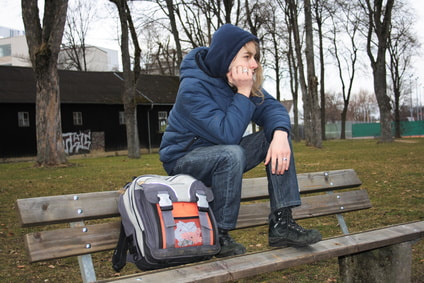Social Anxiety
Social anxiety is a persistent fear of social situations.
Anxiety is one of the most common disorders in children and adolescents. Children and adolescents can suffer from social anxiety and never receive help for it. Often parents think the child just has a shy nature and will grow out of it with time. This is often not the case, and social anxiety usually persists into adulthood.
Cognitive behavior therapy for social anxiety
Symptoms of social anxiety in school-age children are:
- Fear of or refusal to read aloud in class.
- Fear of answering the teacher's questions in front of others or speaking in front of the class
- Fear of meeting new kids or interacting with classmates
- Fear of speaking to adults
- The reluctance of having friends visit
- Excessive worry over negative judgments from others.
- Refusal to participate in sports or social activities in school

Symptoms of social anxiety in adolescents:
Adolescence is a time of increased sociability and usually, heightened attention to peers judgments. This is normal for adolescents.
However, connecting with peers and friends is also an important part of development in this stage of life. If your teenager seems abnormally withdrawn or self-conscious, she or he may need some help.
- Seems unusually quiet
- Keeps to him/herself
- Is hesitant and passive with friends or peers
- Overly concerned about judgment from peers
- Overly concerned of being embarrassed or humiliated
- Avoidance of social activities such as school dances or sporting events
- Prefers to be alone
- Has few or no friends
- Very uncomfortable in the spotlight
Adolescence is a time of increased sociability and usually, heightened attention to peers judgments. This is normal for adolescents.
However, connecting with peers and friends is also an important part of development in this stage of life. If your teenager seems abnormally withdrawn or self-conscious, she or he may need some help.
Proudly powered by Weebly

